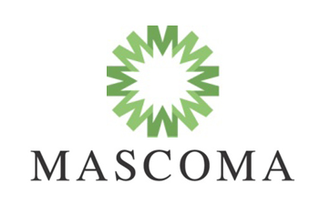Related Research Articles

France Anne-Dominic Córdova is an American astrophysicist and administrator who was the fourteenth director of the National Science Foundation. Previously, she was the eleventh President of Purdue University from 2007 to 2012. She now serves as President of the Science Philanthropy Alliance.
The United States produces mainly biodiesel and ethanol fuel, which uses corn as the main feedstock. The US is the world's largest producer of ethanol, having produced nearly 16 billion gallons in 2017 alone. The United States, together with Brazil accounted for 85 percent of all ethanol production, with total world production of 27.05 billion gallons. Biodiesel is commercially available in most oilseed-producing states. As of 2005, it was somewhat more expensive than fossil diesel, though it is still commonly produced in relatively small quantities, in comparison to petroleum products and ethanol fuel.

The President's Council of Advisors on Science and Technology (PCAST) is a council, chartered in each administration with a broad mandate to advise the president of the United States on science and technology. The current PCAST was established by Executive Order 13226 on September 30, 2001, by George W. Bush, was re-chartered by Barack Obama's April 21, 2010, Executive Order 13539, by Donald Trump's October 22, 2019, Executive Order 13895, and by Joe Biden's February 1, 2021, Executive Order 14007.

The National Taiwan University of Science and Technology is a public university located in Taipei, Taiwan.
Founded in 2001, the American Council on Renewable Energy (ACORE) is a member-based, 501(c)(3) national non-profit organization that unites finance, policy and technology to accelerate the transition to a renewable energy economy.

According to data from the US Energy Information Administration, renewable energy accounted for 8.4% of total primary energy production and 21% of total utility-scale electricity generation in the United States in 2022.

Esther Marley Conwell was a pioneering American chemist and physicist, best known for the Conwell-Weisskopf theory that describes how electrons travel through semiconductors, a breakthrough that helped revolutionize modern computing. During her life, she was described as one of the most important women in science.

Annie Antón is an academic and researcher in the fields of computer science, mathematical logic, and bioinformatics.

Frances Hamilton Arnold is an American chemical engineer and Nobel Laureate. She is the Linus Pauling Professor of Chemical Engineering, Bioengineering and Biochemistry at the California Institute of Technology (Caltech). In 2018, she was awarded the Nobel Prize in Chemistry for pioneering the use of directed evolution to engineer enzymes.

Mascoma Corporation was a U.S. biofuel company founded to produce cellulosic ethanol made from wood and switchgrass. Headquartered in Lebanon, New Hampshire, the company was founded in 2005 by Robert Johnsen (CEO), Lee Lynd and Charles Wyman, two professors from Dartmouth College. The company was named after Mascoma Lake, which is near Lebanon. In November 2014, the yeast-related business assets including the Mascoma name were purchased by Lallemand, Inc. of Montreal, Canada. The R&D facility in Lebanon, NH was renamed Mascoma LLC which is now a subsidiary of Lallemand. The remaining business assets of the former Mascoma Corp. including the thermophilic bacteria technology, pilot plant in Rome, NY, and former headquarters in Waltham, MA were renamed Enchi Corporation.
Joseph S. Francisco is an American scientist and the former president of the American Chemical Society from 2009 to 2010. He currently serves as the President's Distinguished Professor of Earth and Environmental Science and professor of chemistry at the University of Pennsylvania. He was the Dean of the College of Arts and Sciences, and held the Elmer H. and Ruby M. Cordes Chair in chemistry at the University of Nebraska in Lincoln until 2018.
Satya Atluri was an Indian-American engineer, educator, researcher and scientist in aerospace engineering, mechanical engineering and computational sciences, who was a Distinguished Professor Emeritus of Aerospace Engineering at the University of California, Irvine.

Chenming Calvin Hu is a Taiwanese-American electronic engineer who specializes in microelectronics. He is TSMC Distinguished Professor Emeritus in the electronic engineering and computer science department of the University of California, Berkeley. In 2009, the Institute of Electrical and Electronics Engineers described him as a “microelectronics visionary … whose seminal work on metal-oxide semiconductor MOS reliability and device modeling has had enormous impact on the continued scaling of electronic devices”.

Marilyn A. Brown is a Regents' and Brook Byers Professor of Sustainable Systems in the School of Public Policy at the Georgia Institute of Technology. She joined Georgia Tech in 2006 after 22 years at Oak Ridge National Laboratory, where she held various leadership positions. Her work was cited by President Clinton as providing the scientific justification for signing the 1997 Kyoto Protocol. With Eric Hirst, she coined the term "energy efficiency gap" and pioneered research to highlight and quantify the unexploited economic potential to use energy more productively.

Timothy D. Sands is an American materials engineer who is the 16th president of Virginia Tech. Sands previously was the acting president and as the provost of Purdue University.

Jens Nielsen is the CEO of BioInnovation Institute, Copenhagen, Denmark, and professor of systems biology at Chalmers University of Technology, Gothenburg, Sweden. He is also an adjunct professor at the Danish Technical University and the University of Copenhagen. Nielsen is the most cited researcher in the field of metabolic engineering, and he is the most cited researcher in Biology and Biochemistry in Sweden and Denmark. He is the only foreign member of all three academies in the US and he is also foreign member of the Chinese Academy of Engineering. He was the founding president of the International Metabolic Engineering Society. He has additionally founded several biotech companies.

Rakesh Agrawal is the Winthrop E. Stone Distinguished Professor of Chemical Engineering at Purdue University in West Lafayette, Indiana. He is a chemical engineer known for contributions to separations, cryogenic gas separation and liquefaction, and for contributions to renewable energy including the conversion of biomass to chemicals and fuels, inorganic solar cell fabrication, and the synergistic use of solar energy.

James C. Liao is a Taiwanese-American chemist. He is the Parsons Foundation Professor and Chair of the Department of Chemical and Biomolecular Engineering at the University of California, Los Angeles, and is the co-founder and lead scientific advisor of Easel Biotechnologies, LLC.

Nancy Chu Ip Yuk-yu, also known as Nancy Y. Ip in academic publications, is a Hong Kong neuroscientist. She is serving as the 5th President of the Hong Kong University of Science and Technology (HKUST) since 19 October 2022. She had served as the Vice-President of Research and Development, the Morningside Professor of Life Science, and Director of the State Key Laboratory of Molecular Neuroscience at the HKUST. Since December 2022, Ms. Ip has also served as the a deputy from the Hong Kong delegation to the National People's Congress and received the largest number of votes from the 1273 member Electoral Committee which elects delegates, receiving 1254 votes.
John William Sutherland is professor and Fehsenfeld Family Head of Environmental and Ecological Engineering (EEE) at Purdue University who specializes in the application of sustainability principles to design, manufacturing, and other industrial issues.
References
- ↑ "National Science and Technology Medals Foundation". nationalmedals.org. Retrieved 2018-09-28.
- ↑ "Obama honors Purdue professor with technology medal". indystar.com. Retrieved 2018-09-28.
- ↑ "2013 Laureates- National Medal of Technology and Innovation". USPTO. Retrieved 2018-09-28.
- 1 2 3 Lane, Jim (January 20, 2015). "Dr. Nancy Ho, Founder, Green Tech America". biofuelsdigest.com. Retrieved December 13, 2018.
- ↑ "Nancy Ho Chosen to Receive the National Medal of Technology and Innovation : Women In Academia Report". wiareport.com. 31 December 2015. Retrieved 2018-09-28.
- ↑ "1015. Nancy Ho / 何汪瑗 2016/05 | History of Taiwanese American (T.A. Archives) 台美史料中心". taiwaneseamericanhistory.org. 26 May 2016. Retrieved 2018-09-28.
- ↑ "Nancy W. Y. Ho". Purdue.edu. Retrieved December 12, 2018.
- ↑ "Purdue engineer receives top award from President Obama - Purdue University". purdue.edu. Retrieved 2018-09-28.
- ↑ The Miracle Yeast: Amazon.es: Nancy W. Y. Ho: Libros en idiomas extranjeros. ASIN 1489719296.